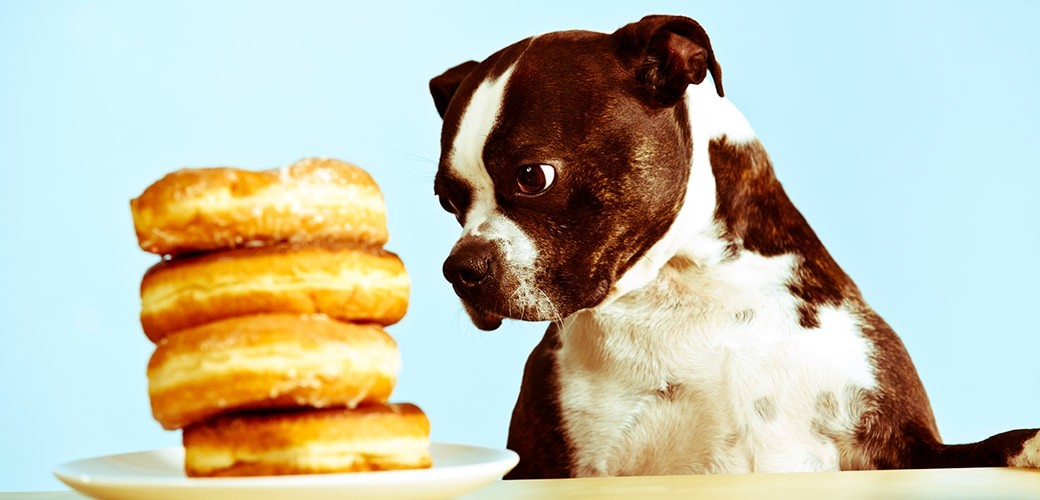Heat and Sun Exposure When there is hot sun, high humidity and hot temperatures, the…
FOODS THAT ARE HARMFUL TO YOUR PET
Alcohol
Alcoholic beverages and food products containing alcohol can cause vomiting, diarrhea, decreased coordination, central nervous system depression, difficulty breathing, tremors, abnormal blood acidity, coma and even death.
Avocados
Avocados contain an ingredient called persin. Feeding your pet too much avocado can cause vomiting and diarrhea.
Chocolate, Coffee & Caffeine
These foods all contain substances called methylxanthines, which are found in cacao seeds, the fruit of the plant used to make coffee, and in the nuts of an extract used in some sodas.
Chocolate is very toxic to pets. It can cause vomiting, diarrhea, lethargy and/or hyperactivity. If ingested in large amounts, it can cause tremors, seizures, an increased heart rate, respiratory failure and even death.
Citrus
The stems, leaves, peels, fruit and seeds of citrus plants contain varying amounts of citric acid, essential oils that can cause irritation and possibly even central nervous system depression if ingested in significant amounts. Small doses, such as eating the fruit, are not likely to present problems beyond minor stomach upset.
Coconut & Coconut Oil
When eaten in small amounts, coconut and coconut-based products are not likely to cause serious harm to your pet. The flesh and milk of fresh coconuts do contain oils that may cause stomach upset, loose stools or diarrhea. Because of this, use caution when offering your pet these foods. Coconut water is high in potassium and should not be given to your pet.
Grapes & Raisins
Grapes and raisins (dried grapes) should never be given to a pet as they can develop acute kidney injury (the sudden development of kidney failure) with anuria (a lack of urine production).
High Fat Foods & Bones
High fat foods can cause pancreatitis (inflammation of the pancreas), which is a very painful condition. Bones can splinter, causing injury or a choking hazard to your pet.
Macadamia Nuts
When pets eat macadamia nuts, they can experience vomiting, weakness, fever, muscle tremors and depression in dogs.
Milk and Dairy
Since pets do not possess significant amounts of lactase (the enzyme that breaks down lactose in milk), milk and other dairy-based products cause them to have diarrhea and other digestive upset.
Mushrooms
Mushrooms purchased in grocery stores are safe and non-toxic to pets. Some varieties of mushrooms found in the wild can be poisonous to dogs, resulting in vomiting, diarrhea, tremors and seizures. If you notice your pet eating a mushroom in the wild, get to a veterinarian immediately. The sooner you seek treatment for your pet, the sooner your veterinarian can begin decontaminating your dog.
Nuts
Nuts, including almonds, pecans and walnuts, contain high amounts of oils and fats. The fats can cause vomiting and diarrhea, and potentially pancreatitis in pets.
Onions, Leeks, Garlic & Chives
These vegetables and herbs in powdered, raw, cooked or dehydrated form can cause gastrointestinal irritation and could lead to a condition called hemolytic anemia which causes red blood cell damage. In severe cases, the anemia may lead to internal organ damage, organ failure or even death.
Persimmons, Peaches & Plums
The problem is the seeds or pits that can block your pet’s intestines. Peach and plum pits also contain cyanide, which is poisonous.
Potatoes (Raw) and Potato Skins
It’s best not to feed raw potato or potato skins to your dog because of the toxins they contain (solanine and chaconine). Even in small amounts, they can experience symptoms similar to food poisoning.
Solanine poisoning can cause heart problems, difficulty breathing and gastrointestinal upset. Chaconine can cause irritation to the digestive tract, tremors and kidney function failure.
Raw or Undercooked Meat, Eggs & Bones
Raw meat and raw eggs can contain bacteria such as salmonella and e. coli that can be harmful to pets and humans. Raw eggs contain an enzyme called avidin that decreases the absorption of biotin (a B vitamin), which can lead to skin and coat problems. Some fish can also have a parasite, causing vomiting, fever and enlarged lymph nodes.
Feeding your pet raw bones may seem like a natural and healthy option that might occur if your pet lived in the wild. However, this can be very dangerous for a domestic pet, who might choke on bones, or sustain a grave injury should the bone splinter and become lodged in or puncture your pet’s digestive tract.
Rhubarb
Rhubarb is on the list of plants that are toxic to dogs. It can cause salivation, tremors and kidney failure.
Salt & Salty Snack Foods
Large amounts of salt can produce excessive thirst and urination, or even sodium ion poisoning in pets. Signs that your pet may have eaten too many salty foods include vomiting, diarrhea, depression, tremors, elevated body temperature, seizures and even death. Avoid feeding salty snacks like potato chips, pretzels and salted popcorn to your pet.
Sugary Foods & Drinks
Sugary food and drinks should never be given to your pet. They will result in your pet becoming overweight, and cause teeth problems and diabetes.
Xylitol is a sugar substitute used in many products. It can cause vomiting, loss of coordination, seizures, and in severe cases, liver failure. It can also cause a spike in insulin, resulting in severely low blood sugar.
Yeast Dough
Yeast dough can rise and cause gas to accumulate in your pet’s digestive system. This can be painful and cause the stomach to bloat, and potentially twist, becoming a life threatening emergency. The yeast produces ethanol as a by-product and a dog ingesting raw bread dough can become drunk. This can result in alcohol poisoning.



